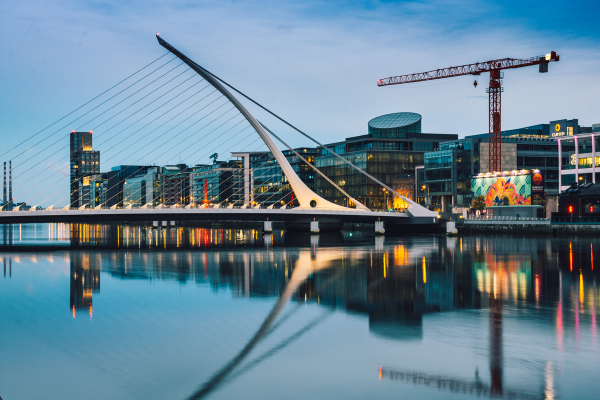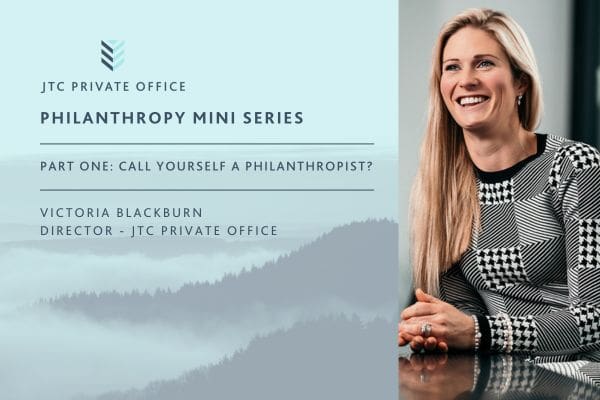In this article, Ganessen Soobramanien, Director, Client Services at JTC (Mauritius) Limited looks at the factors influencing where to domicile a corporate vehicle investing in sub-Saharan Africa.
Some jurisdictions have developed regional specialisms and expertise such that they are widely seen as the jurisdiction of choice for incorporating holding vehicles investing in another part of their region. Singapore has developed such specialisms for inward investment into the Asia-Pacific Rim, and the Netherlands for Pan-European investments. Other jurisdictions have developed product-led specialism such as Eire for intellectual property holding companies or the Cayman Islands for hedge funds.
For sub-Saharan Africa, there is no doubt Mauritius has emerged as the number one choice for domiciling international structures investing into the African continent; however why is this? What is so special about Mauritius?
As you would expect, there is no one factor, but a combination of factors that influence the decisions of investors seeking the ideal location in which to domicile a holding vehicle, and the following features are common to many first choice jurisdictions:
- Political stability and certainty of law in the form of an independent and strong judiciary
- A modern, flexible legal framework facilitating international mergers & acquisitions and cross border investment activities
- A relevant, extensive tax treaty network
- Regulation on a par with the best international finance centres
- Skilled workforce, supporting infrastructure, and professional service providers working to international standards of best practice
- Tax neutrality, tax is paid where it is due, but not in the holding company jurisdiction unless part of a tax treaty or concessionary tax arrangement
- No gains, inheritance or other capital taxes, no withholding tax on distributions
- No exchange control, free movement of capital and profits
- Privacy consistent with international norms around transparency and the appropriate exchange of information
- Geographic in a time zone suiting all stakeholders.
Mauritius satisfies all of these criteria generally, and very specifically in respect of its relationship with sub-Saharan Africa. Looking at some of these factors in more depth:
Skilled workforce
Surveys amongst investors and their advisers generally conclude that the availability of qualified professionals and service levels are a key determinant in the selection of an international finance centre.
Unlike many international financial centres, Mauritius does not rely on expatriates and transient employees. It has a buoyant domestic economy not overly reliant on financial services and so is more comparable to Singapore than other offshore islands where typically offshore financial services dominate the local economy.
The working population includes a large pool of home-grown, young professionals, including lawyers, chartered accountants, chartered secretaries and trust practitioners, all products of first class education system that serves as a tertiary education hub for the region. Many Mauritius institutions run UK approved and sponsored university programs, and typically graduates go on to acquire UK professional qualifications.
Alongside the young talent are older heads, which over the last 25 years have helped develop the Mauritius financial services sector to the highly respected position it now commands, with Mauritius practitioners held in high regard by international investors. Investors also appreciate the availability of qualified labour and other resources mean that overheads have not escalated, and the cost of professional services can be significantly less than charged in other jurisdictions.
Having been a French, then a British colony, Mauritius is perfectly bilingual. French is the main spoken language; however English is the official language used in business and government, and is adopted by the education system. Many parts of Africa are French speaking, so using a Mauritius administrator who is comfortable transacting business in either language is an advantage not shared by many other international finance centres, save for the Swiss.
Mauritius links with the African continent
Mauritius is part of Africa. It has deep African roots with a third of its population being of African origin. It is no surprise that Mauritius has close diplomatic ties with many African countries, and that a significant number see Mauritius as a source of foreign direct investment, hence the structuring of inward investment through a Mauritius holding vehicle is widely accepted – perhaps more so than if that same investment was structured through a jurisdiction thousands of miles away.
Mauritius is the only international financial services centre to be a member of Africa’s principal organisations, such as the African Union, the South African Development Community (SADC), the Common Market for Eastern and Southern Africa (COMESA) and the Indian Ocean Rim-Association for Regional Cooperation (IOR-ARC). Mauritius is also a signatory to numerous multilateral conventions relating to Africa.
These links have allowed Mauritius to sign Investment Promotion and Protection Agreements (IPPAs) with African nations, and 28 IPPAs are in force with 16 more awaiting ratification. These IPPAs typically provide the following guarantees to investors from the contracting states:
- Free repatriation of investment capital and returns
- Guarantees against expropriation
- ‘Most favoured nation’ rule with respect to treatment of investment, compensation for losses in case of war or armed conflict or riot, etc
- Arrangements for settling disputes between investors and contracting states
View the full list of IPPAs either in force or awaiting ratification.
Building on this, one of COMESA’s objectives is to create a Common Investment Area, and a draft of an Investment Framework Agreement is currently being reviewed by member states. This agreement should be similar to a multilateral IPPA for all member states and one of its aims is to “progressively reduce or eliminate investment regulations and conditions which may impede investment flows and the operation of investment projects in COMESA”.
There is no guarantee a Mauritius holding vehicle will by way of right benefit from the trade advantages of COMESA however when such an entity expands to include activities such as manufacturing, assembly, trading, etc, Mauritius offers opportunities of access to COMESA while other offshore centres may not be able to do so.
COMESA currently consists of 21 member states, a list of which can be found at www.comesa.int
Tax Treaty network
Mauritius has concluded 44 tax treaties and is party to 32 further treaties at various stages of negotiation through to ratification. Many of the treaties are with African nations and further information can be gained by visiting the Mauritius Revenue Authority website:
For Mauritius holding vehicles structured so as to qualify for treaty benefits, the potential to reduce capital gains taxes, and withholdings taxes on dividends, interest payments and royalties are significant.
For example, capital gains tax, where imposed in Africa, is generally levied at a rate in the range of 30-35%; however all Mauritius tax treaties restrict taxing rights of capital gains to the country of residence of the seller of the assets. As Mauritius does not tax capital gains, there is potential to significantly reduce the effect of taxation when a Mauritius domiciled vehicle disposes of an asset.
It is worth noting that many African nations do not currently tax capital gains; however if they were to do so in the future, then a favorable bilateral tax treaty is likely to provide protection against such domestic tax law changes in a country of investment. Care should be exercised however where immovable properties are held in Africa, as capital gains are generally taxed in the country of situs of the assets.
Turning to withholding taxes on dividends, almost all African nations impose some withholding tax on dividends paid to non-residents, the rate of such imposition generally ranging between 10 to 20%. All Mauritius tax treaties limit the withholding tax on dividends, and the treaty rates are generally 0%, 5% or 10%, thereby creating potential tax savings of 5% to 20% depending on the country.
The treaties provide safeguards around the maximum effective withholding tax rate in the event of changes to the fiscal policies in investee countries. An overview of treaty withholding tax rates is provided on Mauritius Revenue Authority website:
Geographically placed right
At the time of writing, Mauritius is one hour ahead of East Africa and three hours ahead of West Africa so well placed to do business with Africa during a normal working day. In a wider context, Mauritius is in a time zone that allows it to work with global investors on a same business day basis, as to the east, Tokyo is +5 hours, and to the west, London is -4 hours and New York –9 hours.
Mauritius is very much part of Africa. However, being an island, it remains insulated from the continent, should geopolitical unrest ever become an issue.
International banking and treasury management
Having supporting infrastructure is critical for an international finance centre, and banking services are a core part of that infrastructure. Mauritius is one of Africa’s preferred jurisdictions for locating international banking operations and one of the few where there is a free flow of foreign exchange.
International banks are already represented in Mauritius in large and growing numbers. They have demonstrated an appetite for financing M&A transactions in Africa although generally most are more comfortable when the holding company of the African operation is a Mauritius entity.
Multinational corporations with operations in various African countries sometimes face difficulties in making international payments from one African country to another. As a result, many of these multinationals have established their treasury management platforms in Mauritius so that all cross-border payments are made from their Mauritius bank accounts.
These platforms are also able to provide netting services of intra-group payables and receivables ensuring the efficient deployment of liquidity within the group. As Mauritius has zero or very low corporate tax, Mauritius holding-cum-treasury companies can be the perfect recipients of dividend and interest income from African operations, which they can then efficiently re-deploy across the group as required.
Use of Mauritius holding vehicles by African investors
It is easy to see why an international investor would structure an investment in Africa through Mauritius or similar jurisdiction. However, we are now also seeing African investors recognise the benefits of using an international company structure to conduct business in Africa.
To the extent that local laws permit (and they most often do), local investors are sometimes choosing to hold their local investments through international companies (sometimes as part of a family trust), even though no tax benefits accrue from the process. The rationale is driven by past experience of political instability, the risk of expropriation of assets, or a lack of faith in the governance of law.
Where cross-border investments are concerned, African investors (families and corporates alike) routinely take advantage of international company structures to make and hold their investments, and a Mauritius vehicle is the most used legal structure.
Joint venture platform
Inbound African investment by international investors such as high net worth families and corporates often take the form of joint ventures with local African partners. Understandably such investors are cautious, and their advisers generally reluctant to have the joint venture entity incorporated in the local African jurisdiction of investment.
To such investors, incorporating the joint venture company in a tax-neutral, well-regulated jurisdiction is an often trodden path and, as we have seen, African business people are also open to the attractions of such structuring. Mauritius works for both parties at all levels and is increasingly the jurisdiction in which there can be a happy marriage between international investor and African entrepreneur.
Judiciary, place of arbitration
Investors quite rightly place importance on the proper law governing their investments and to the judicial system supporting that law. This is particularly true where the investments are joint ventures. Generally speaking, international investors prefer agreements written under well-established law such as the law of England rather than the arguably less predictable law of the investment destination country where there may be less precedent and therefore less certainty.
Prior to its independence in 1968 Mauritius had been a French and then British colony. As a result its legal system is a hybrid, based on both civil and common law practices and this can appeal to investors familiar with both civil and common law jurisdictions. Indeed many African countries are civil law jurisdictions, so African partners are generally comfortable with Mauritian law with its civil law component rather than the pure common law of England.
Mauritius has always been a politically stable nation with a highly respected court system. Corporate law in the country has developed to be modern and flexible, and very suitable for various kinds of capital structuring and restructuring desirable in M&A work. Such stability and suitability is not necessarily the case across all African nations.
Despite Mauritius being a democratic republic, it has retained the UK Privy Council as its highest court of appeal. In fact the UK Privy Council sits in Mauritius at least once every year, speaking volumes for the strength and reputation of the Mauritius judiciary.
To most investors, recourse to the courts is a last resort, ideally to be avoided, so most investment agreements or major contracts provide for an arbitration mechanism which also helps preserve confidentially. Major cities like London, New York and Singapore are well known seats of arbitration, however Mauritius is now emerging as a place of arbitration in its own right, especially for Africa-centric businesses or transactions.
The Mauritius government supports making Mauritius the regional African hub for alternative dispute resolution, hence in July 2011, the government, the London Court of International Arbitration (LCIA) and the Mauritius International Arbitration Centre Limited (MIAC) entered into an agreement for the establishment and operation of a new arbitration centre in Mauritius, to be known as the LCIA-MIAC Arbitration Centre.
LCIA is one of the longest-established arbitral institutions in the world. The Mauritian centre offers all the services LCIA offers in the UK whether according to LCIA-MIAC’s own rules, or the UNCITRAL arbitration rules, or any other procedures agreed by the parties.
Free port, local manufacturing
Unlike some island based international finance centres, Mauritius has a broad and well-developed economy outside of financial services.
This presents opportunities for international businesses to invest in the local economy for example the port sector is well developed where the Freeport hosts companies involved in regional trade, break bulk operations, simple assembly and transformation, LPG storage and re-export, processing of seafood products for leading global markets in the EU, the US and Far East, light assembly and manufacturing for export. There is no restriction on foreign ownership, and the corporate tax rate is zero.
JTC (Mauritius) Limited is regulated in Mauritius by the Mauritius Financial Services Commission.
Stay Connected
Stay up to date with expert insights, latest updates and exclusive content.
Discover more
Stay informed with JTC’s latest news, reports, thought leadership, and industry insights.
Let’s Bring Your Vision to Life
From 2,300 employee owners to 14,000+ clients, our journey is marked by stability and success.



















